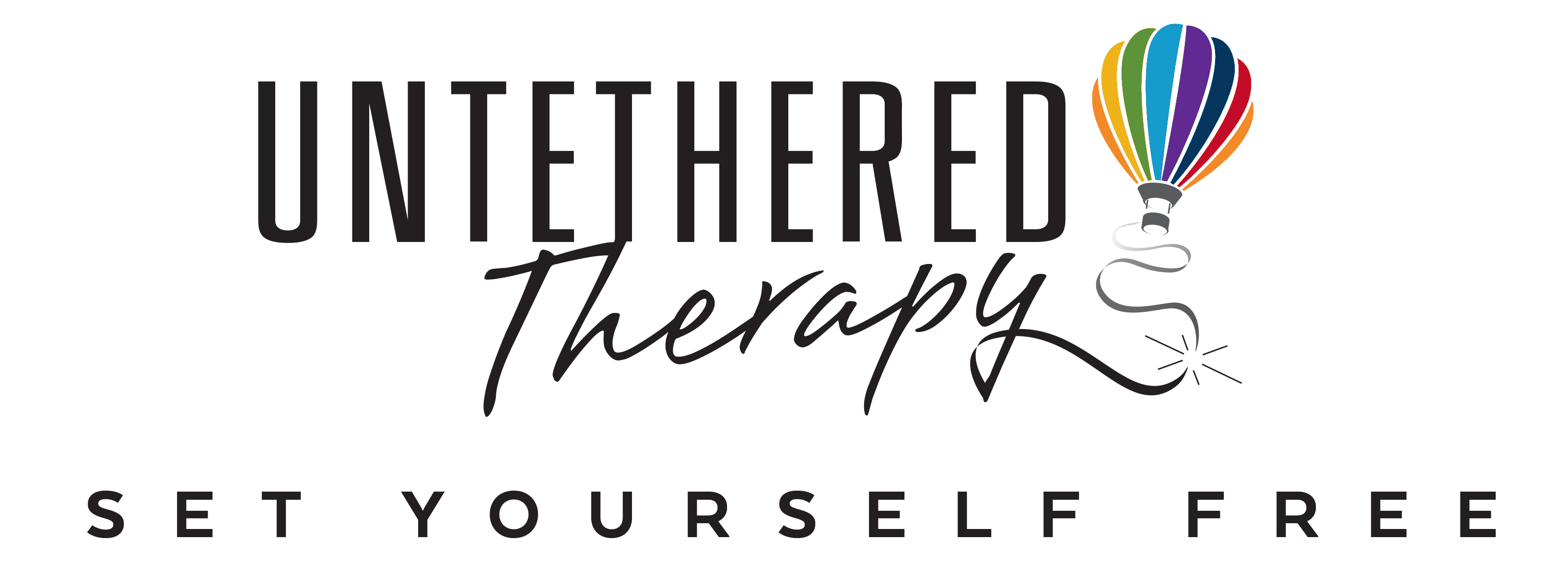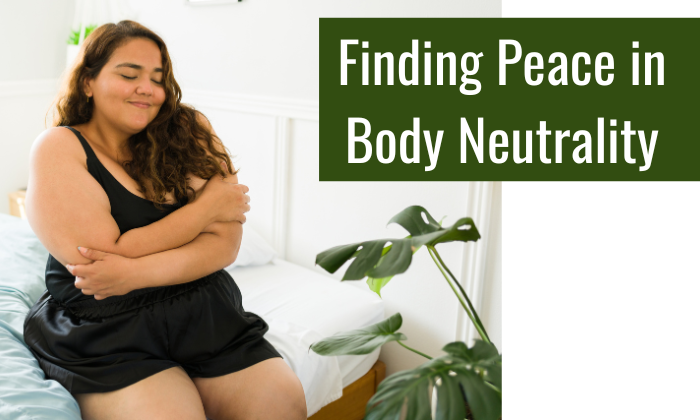At Untethered Therapy, we often talk with clients about the many ways our relationship with our body can shape our mental and emotional health. For some, that relationship has been marked by years of criticism or comparison. For others, by pain, illness, or a sense of betrayal when the body doesn’t do what we wish it would.
We want to invite a different conversation — one rooted not in perfection or relentless positivity, but in peace.
A Different Kind of Relationship With Your Body
Talking about body image often brings up conversations about body positivity — the idea that we should learn to love every part of ourselves just as we are. It’s a hopeful and empowering message, but it can also feel out of reach for many people. Loving our bodies isn’t always easy, especially when we’ve been taught to criticize them, compare them, or see them as problems to solve.
That’s where body neutrality offers another way — one that invites gentleness, honesty, and compassion.
It says: You don’t have to love your body every day. You can simply make peace with it.
From Positivity to Peace
Body neutrality shifts the focus from how our bodies look to what our bodies do for us. It’s about recognizing the quiet, everyday ways our bodies support our lives — carrying us through hard days, helping us connect with others, or allowing us to rest when we need it.
Instead of forcing positivity, neutrality gives us permission to hold a balanced perspective. It allows us to say:
“I may not love everything about my body, but I can respect it.”
“My body doesn’t have to be perfect to deserve care.”
“I can appreciate what my body allows me to experience, even on difficult days.”
When we step into that space, we begin to move away from judgment and toward acceptance — a state that feels calmer, more sustainable, and deeply healing.
When Your Body Feels Like an Adversary
For people living with chronic illness, pain, or disability, the idea of “loving your body” can feel especially complicated. How do you love something that also limits you, hurts you, or feels unpredictable?
Body neutrality acknowledges that reality — and makes room for it. It offers a language that honors both frustration and gratitude. Acceptance doesn’t mean pretending everything is okay; it means allowing truth to exist without shame.
You can be angry at your body and still care for it.
You can grieve its limits and still recognize its resilience.
You can hold love and disappointment at the same time.
This compassionate neutrality can create a sense of safety — a reminder that your body is not your enemy, even when it feels unfamiliar or uncooperative. It’s still yours, and it still deserves kindness.
Acceptance as an Ongoing Practice
Body neutrality isn’t about indifference or resignation. It’s about choosing presence over punishment. It’s about treating your body as a partner rather than a project.
Practicing neutrality might sound like:
- Taking a deep breath and noticing your body’s strength in that moment.
- Allowing rest without guilt.
- Speaking to yourself with the same gentleness you’d offer someone you love.
Acceptance doesn’t happen all at once — it grows in small, consistent moments of respect and care.
Reflective Practice: A Gentle Check-In
Try this brief reflection to begin cultivating body neutrality:
- Find a quiet moment.
Sit somewhere comfortable. Take a few slow breaths. Notice where your body is touching the chair, the floor, or the space around you. - Acknowledge, don’t evaluate.
Gently scan from head to toe, simply noticing sensations — warmth, tension, stillness, pain, comfort. Try to observe without assigning “good” or “bad.” - Offer a statement of gratitude.
Choose one part of your body and complete the sentence:
“Thank you for…”
Maybe it’s “Thank you, hands, for helping me express care.”
Or “Thank you, legs, for carrying me through this week.”
- End with compassion.
Close your eyes and say quietly, “My body is not perfect. It doesn’t have to be. It’s part of me, and I can choose peace.”
Practiced regularly, this small ritual can begin to shift how you relate to your body — from criticism to connection, from avoidance to acceptance.
Moving Toward Wholeness
Your body is the home you live in every day. It may be imperfect, unpredictable, or even painful at times — but it is also resilient, responsive, and worthy of care. And perhaps that’s the heart of body acceptance: not forcing constant love, but cultivating a quiet peace with the body that carries you through this life.
At Untethered Therapy, we support individuals in reconnecting with their bodies — gently, compassionately, and at their own pace. Whether through talk therapy, mindfulness, or somatic approaches, we believe that healing begins when we can meet our bodies with understanding rather than judgment.
– by Chris Burd, LAPC

